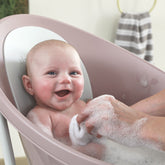Pregnancy brings many changes—some exciting, some challenging—and one question many moms-to-be ask is: Can I still wear high heels? While heels can add style and confidence to your outfit, they may not always be the safest choice during pregnancy.
Let’s break down the risks, considerations, and safer alternatives so you can make the best decision for you and your baby.
✔ Choose Supportive Shoes – Look for heels with good arch support and cushioning to reduce strain on your feet.
✔ Limit Wear Time – If you must wear heels, do so for a short period and bring comfortable flats as a backup.
✔ Walk Carefully – Be mindful of uneven surfaces, stairs, or slippery floors to prevent falls.
✔ Listen to Your Body – If you start feeling discomfort, pain, or unsteady, switch to more supportive footwear.

Why High Heels Can Be Risky During Pregnancy
Your body undergoes significant changes during pregnancy, and these changes can make wearing heels more challenging and even unsafe. Here’s why:1. Shifts in Your Center of Gravity
As your belly grows, your weight distribution changes, shifting your center of gravity forward. This makes it harder to maintain balance, increasing your risk of tripping or falling—especially in high heels.2. Loosening of Joints and Ligaments
Pregnancy hormones, particularly relaxin, cause your ligaments and joints to loosen in preparation for childbirth. While this is essential for delivery, it can make your ankles and feet more unstable, increasing the chances of sprains or injuries when wearing heels.3. Increased Foot Swelling and Discomfort
Swollen feet are common in pregnancy, especially in the third trimester. High heels can make swelling worse by restricting circulation and putting extra pressure on your feet. This can lead to discomfort, cramping, or even varicose veins.4. Added Strain on Your Back and Hips
Pregnancy already places extra strain on your lower back, and heels can make this worse by shifting your posture. This may lead to increased back pain, hip discomfort, and even long-term musculoskeletal issues.When Is It Okay to Wear Heels?
While it’s best to avoid high heels during pregnancy, occasional wear for short periods (such as for a special event) may be okay if you feel comfortable. However, keep these guidelines in mind: ✔ Opt for Lower Heels – Stick to heels that are 1-2 inches high rather than stilettos. Wedges or block heels offer more stability than thin, high heels.✔ Choose Supportive Shoes – Look for heels with good arch support and cushioning to reduce strain on your feet.
✔ Limit Wear Time – If you must wear heels, do so for a short period and bring comfortable flats as a backup.
✔ Walk Carefully – Be mindful of uneven surfaces, stairs, or slippery floors to prevent falls.
✔ Listen to Your Body – If you start feeling discomfort, pain, or unsteady, switch to more supportive footwear.
Safer Alternatives to High Heels
If you love the elevated look of heels but want to stay comfortable and safe, here are some stylish alternatives:- Wedge Heels – Provide height while offering more stability.
- Low Block Heels – A sturdy option that minimizes balance issues.
- Ballet Flats with Arch Support – A chic and comfortable alternative.
- Sneakers with Cushioning – Great for everyday wear and foot support.

Content Reviewed by Dr V.
Learn MoreDr. Vaheh Shirvanian, a family medicine physician and father. With over 17 years of experience, he specializes in inpatient acute hospital care, outpatient family medicine, urgent care, emergency medicine, and hospice care. Dr. V is passionate about guiding new parents through the challenges and joys of parenthood, offering compassionate and expert support at every step.
Tags:








